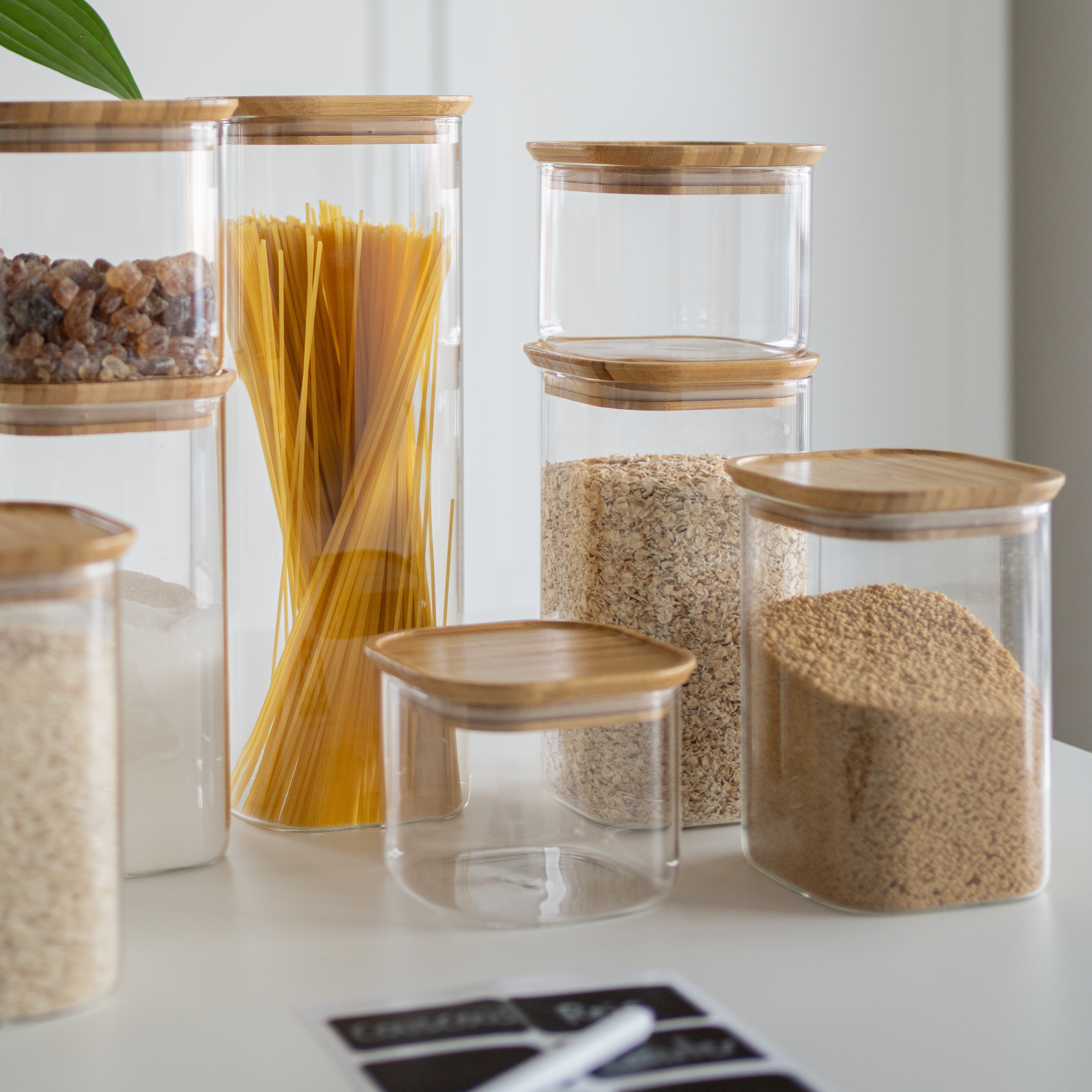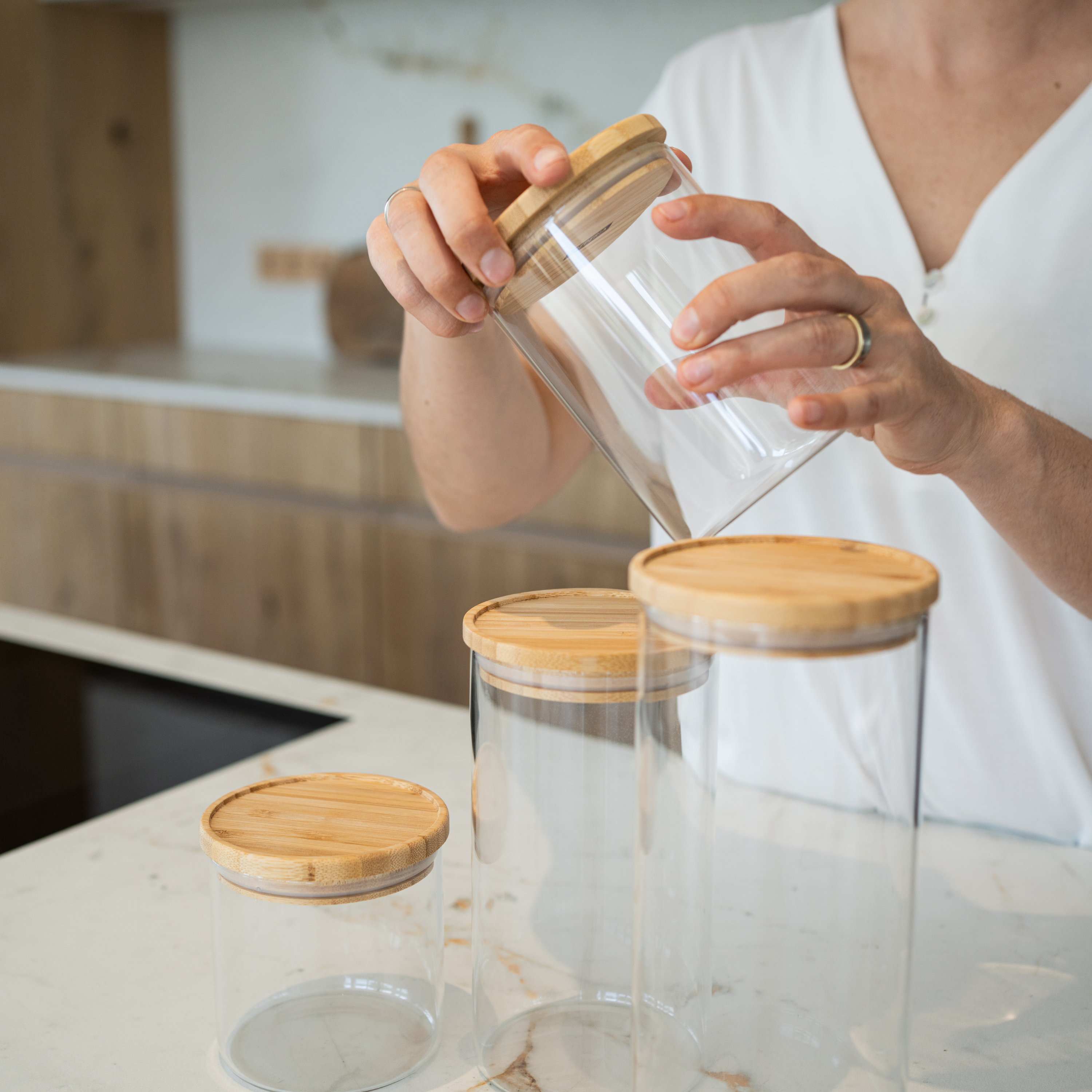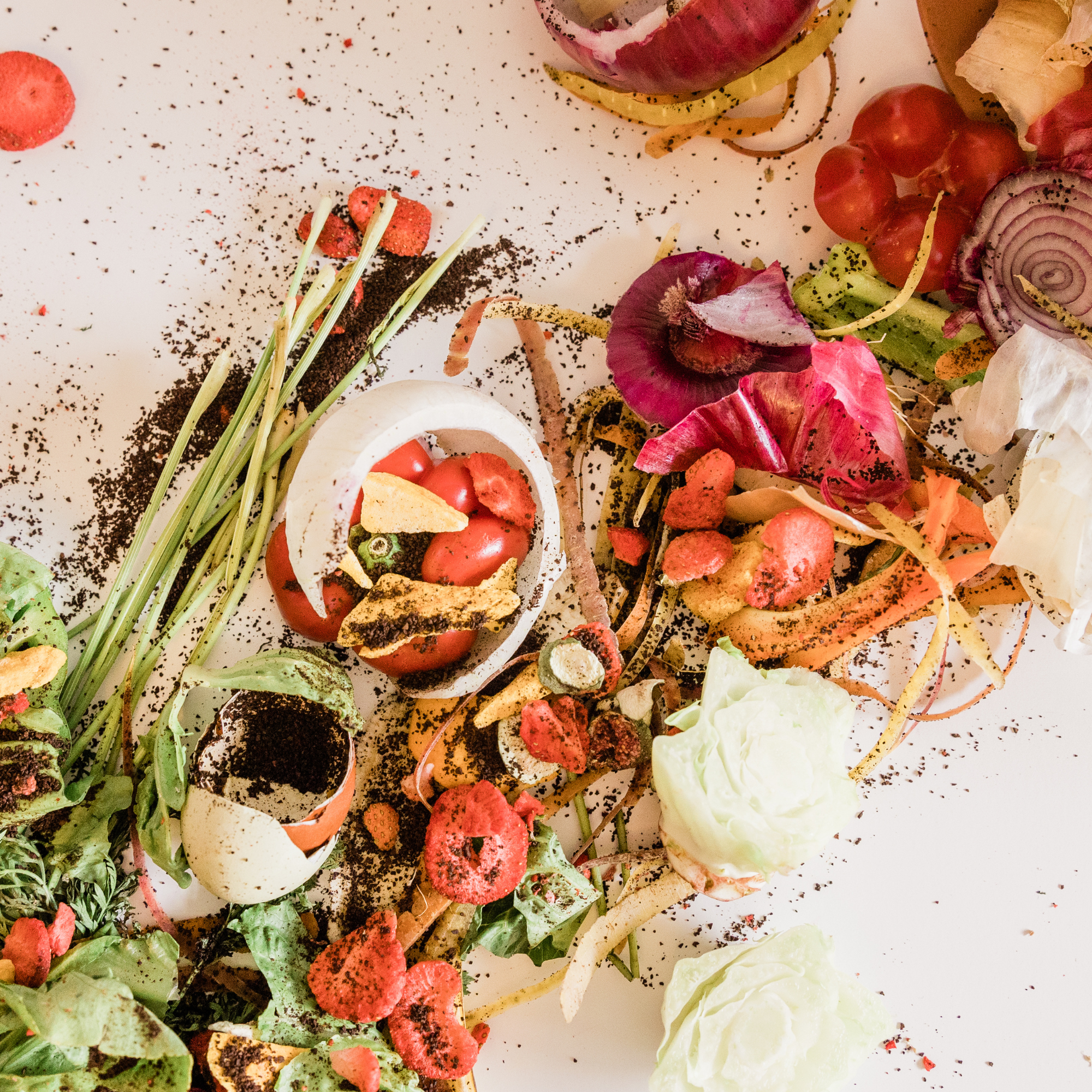Too often, high-quality food ends up in the garbage can and spoils because we simply don't store our food properly. This is not only a waste of good food, but also costs us a lot of money in the long run.
In the fridge or at room temperature, in the pantry or on kitchen shelves - storing food correctly is not that easy, as there are countless factors to consider.How to store your supplies correctly and how to stock up on food is explained in our tips.
Storage in the fridge - what you should bear in mind
Many of your foods need cool temperatures and high humidity, which is why they should be kept nice and fresh in the fridge.

Make sure you wrap your food well before putting it in the fridge
How to store your food in the fridge
There are temperature differences of around 7-13 degrees in the fridge, so there are different cold zones that are important when storing food
Upper compartment: perishable foods such as prepared dishes, leftovers, jams, sauces, spreads, etc.
Middle compartments: dairy products such as butter, cream, quark, cheese or yogurt
Lower compartment: Perishable foods such as fish, meat and sausage
Vegetable compartment: Sensitive foods such as broccoli, lettuce, celery, carrots, etc.
You should definitely store the following foods in the fridge
-
All dairy products (milk, cheese, yogurt, etc.)
-
Meat, sausage
-
Fish
-
Broken food and leftovers
-
Some fruit and vegetables
-
Eggs,
In general, when storing food, you should make sure that you do not buy perishable food first in the store and get it home as quickly as possible. As foods such as meat and dairy products are so sensitive, the cold chain should never be interrupted. It is therefore essential to take a cool bag with you when shopping on hot summer days.
You can find out the best way to clean your fridge here. (Link to article Cleaning the fridge)You should never store food in the fridge in the open. Use shallow storage tins or containers to store leftovers to protect them from environmental influences and germs.
Freezing for the freezer
Almost all foods can be frozen without hesitation to preserve them for longer

You can store these foods in the freezer
-
Fresh herbs
-
Fruit and vegetables
-
Fish and meat products
-
Butter
-
Food leftovers
-
Bread
Freezing is worthwhile for long-term storage to preserve your stock for longer. Buying a whole loaf of bread, which you can store in smaller quantities in slices, is particularly practical. You can easily store the baked goods in tins and then defrost them in the toaster or oven.
This means you don't have to rush to eat food as quickly as possible every time, but simply defrost the quantities that are actually consumed.
Storing food in a dry place - you should bear this in mind
Dry food can generally be stored in its original packaging in cupboards, as long as they are sealed airtight.
If this is not the case, you should transfer the food to suitable storage jars or storage boxes.
You can store these foods in a dry place
-
Pasta
-
Rice, bulgur, couscous, spelt, etc.
-
Oat flakes
-
Flour
-
Sugar
-
Coffee, tea, cocoa powder
-
Dried fruit
-
Spices
-
Biscuits
Make sure that these supplies are stored in airtight containers and do not leave them on the windowsill or on open shelves, as they should not be exposed to direct sunlight.

Storage in the pantry - store supplies in the dark
Some foods do not belong in the fridge, but should be stored in a cool, dark place.
-
Homemade fruit and vegetables (apples, pears, potatoes, onions, carrots)
-
Canning tins
-
Spices and oils
-
Drinks
-
Dry foods (pulses, nuts, dried fruit, rice, etc.)
-
Dairy products (UHT milk) and eggs
For many of these foods, the normal room temperature is too low, which is why you should definitely pay attention to the storage temperature in your cupboards if you don't have a cellar available
When stocking your larder, it is advisable to keep the different food groups in mind in order to create a certain structure in your pantry.
Fruit and vegetables, for example, should be stored in air-permeable boxes to prevent them from becoming damp.
Other supplies such as oils and spices are part of long-term storage and should be kept in a storage location where they are always protected from sunlight.
The lower shelves of your pantry are particularly suitable for storing drinks and heavy cans.
Once you have understood what to look out for when storing food, stocking up your household will be much easier.
This allows you to shop in a much more targeted way, as everything has its place in your home and you avoid food waste, as your food will no longer spoil so quickly.





